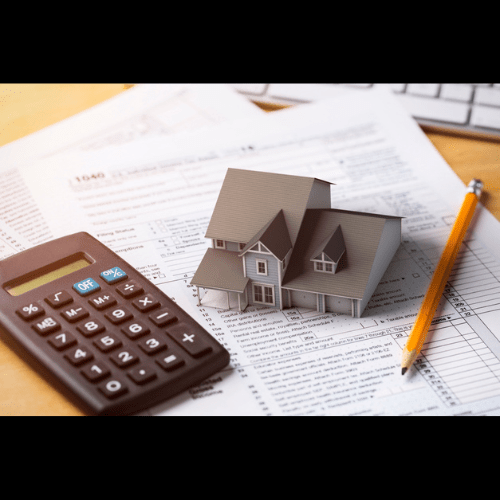Soaring home values are a boon to homeowners who’ve seen their equity climbing. But they can also bring a nasty surprise in the form of rising property tax bills. Several states are pursuing measures to limit the pain for homeowners by limiting annual increases to property tax revenue collections or assessment values.
In November, voters in Colorado and Georgia will weigh in on two such proposals. So far this year, Alabama, Wyoming, and Kansas have enacted new laws designed to limit future property tax hikes for homeowners. Other states are looking at more limited carve-outs and exemptions.
“All of these proposals are really about what’s the desired level of overall taxation and who has to pay it,” says Realtor.com® Chief Economist Danielle Hale. “Homeowners should remember, and many do remember, that you’re paying property taxes to fund local services, including things like schools, libraries, parks, and local facilities that can make a community a great place to live.”
The proposals follow a rapid surge in home values, which have jumped 54% in the past five years, according to the Case-Schiller home price index. Last year, state and local governments collected about $760 billion in property taxes, a category that includes both real estate and personal property, according to U.S. Census data. That was up 31% from 2018, an increase that represents collections from new buildings as well as existing ones.
Property taxes are complex in part because they are usually assessed and collected at the local level in cities and counties, under rules that vary from state to state. Changing those rules, which are frequently already byzantine, can be a challenge for lawmakers, and has sometimes backfired in the past.
State-by-State Actions
Colorado: In November, Colorado voters will decide on Initiative 50, which aims to cap total statewide property tax revenue growth at 4% annually. Another measure, Initiative 108, seeks to reduce assessment rates for residential and nonresidential properties. Both measures could significantly impact local budgets, with estimates suggesting Initiative 108 alone could reduce local revenues by $3 billion in the first year (Governing) (Kiplinger.com).
Georgia: Georgia residents will vote on a proposal to cap residential property value assessments at the rate of inflation. Local governments can opt-out of this cap, but they must do so publicly. Georgia has also seen various tax cuts this year, bolstered by a budget surplus of $10.7 billion (Kiplinger.com).
Alabama: Alabama has enacted legislation that caps annual increases in assessed property values at 7%. This measure aims to mitigate the impact of inflation and housing shortages on property tax bills (Governing).
Wyoming: Wyoming has implemented a 4% cap on annual property tax increases for residential structures and land. Additional measures include exemptions for veterans and long-term homeowners over age 65. However, a proposal to provide a 25% homeowner tax exemption was vetoed due to concerns over wealth redistribution (Governing).
Kansas: Kansas passed a bipartisan bill increasing the residential property tax exemption to $75,000, projected to save homeowners $236 million over five years. This change was part of a larger tax reform effort focusing primarily on reducing income taxes (Governing).
Challenges and Considerations
While these measures provide some relief, they come with trade-offs. For example, reducing property taxes on primary residences often shifts the burden to rental and commercial properties. In some cases, this can lead to higher taxes for businesses and renters, potentially distorting the housing market and local economies (Kiplinger.com).
Moreover, completely abolishing property taxes, as proposed in some states, poses significant challenges. States like Michigan and Wyoming have explored replacing property taxes with higher sales taxes, but this shift could disproportionately affect lower-income residents (Governing).
Conclusion
The debate over property taxes continues as states seek to balance the need for local revenue with the financial burden on homeowners. While caps and exemptions provide temporary relief, the long-term solution requires careful consideration of economic impacts and equity among taxpayers. As home values continue to rise, the conversation around property tax reform is likely to remain a critical issue for lawmakers and homeowners alike.
For more detailed information on the latest property tax measures and their impacts, you can explore sources like Governing and Kiplinger.
by Steve Macalbry
Senior Editor,
BestGrowthStocks.Com
Disclaimer: This article is intended for informational purposes only. It should not be considered financial or investment advice. We do not hold any form of equity in the securities mentioned in this article. Always consult with a certified financial professional before making any financial decisions. Growth stocks carry a high degree of risk, and you could lose your entire investment.







